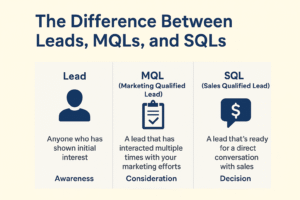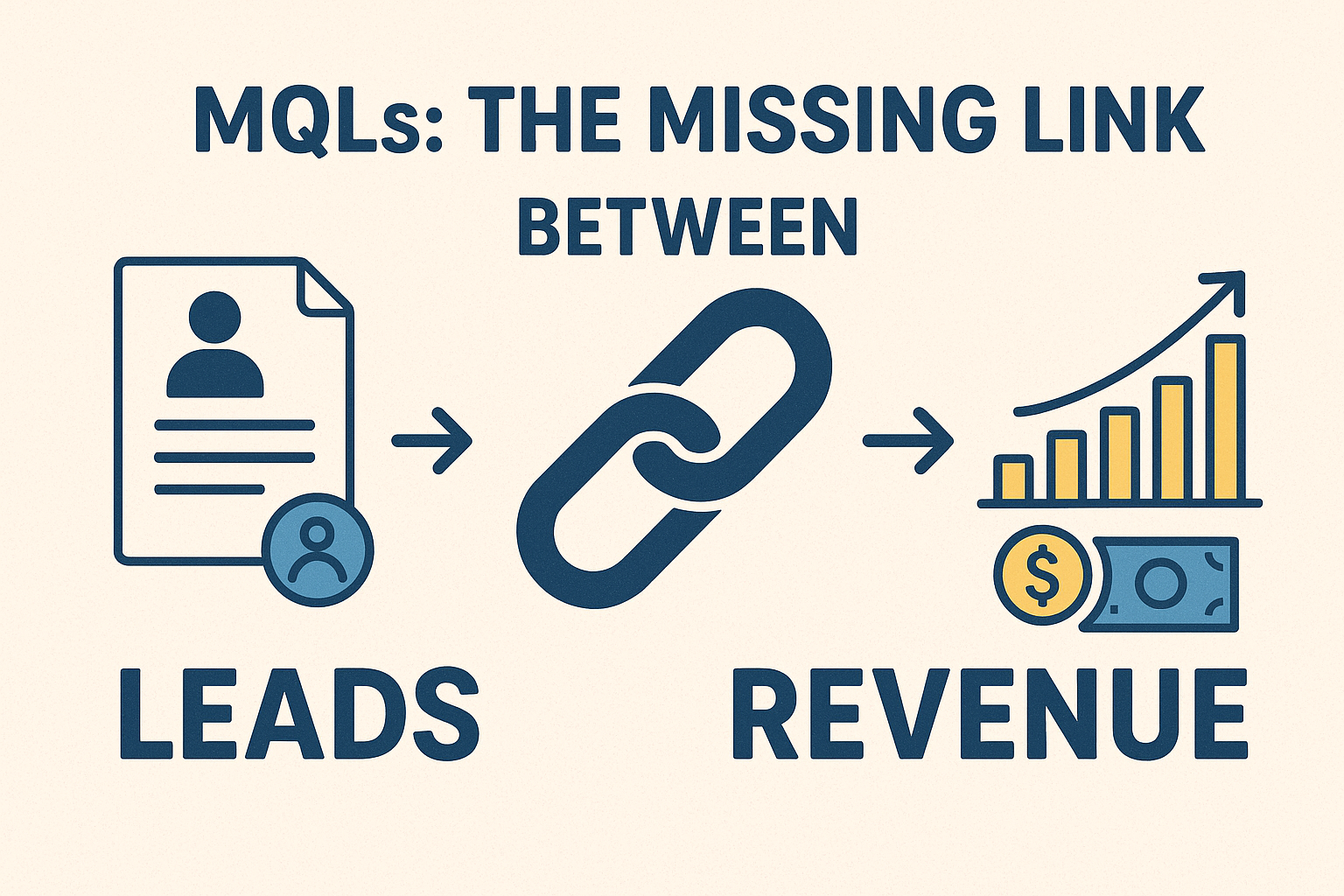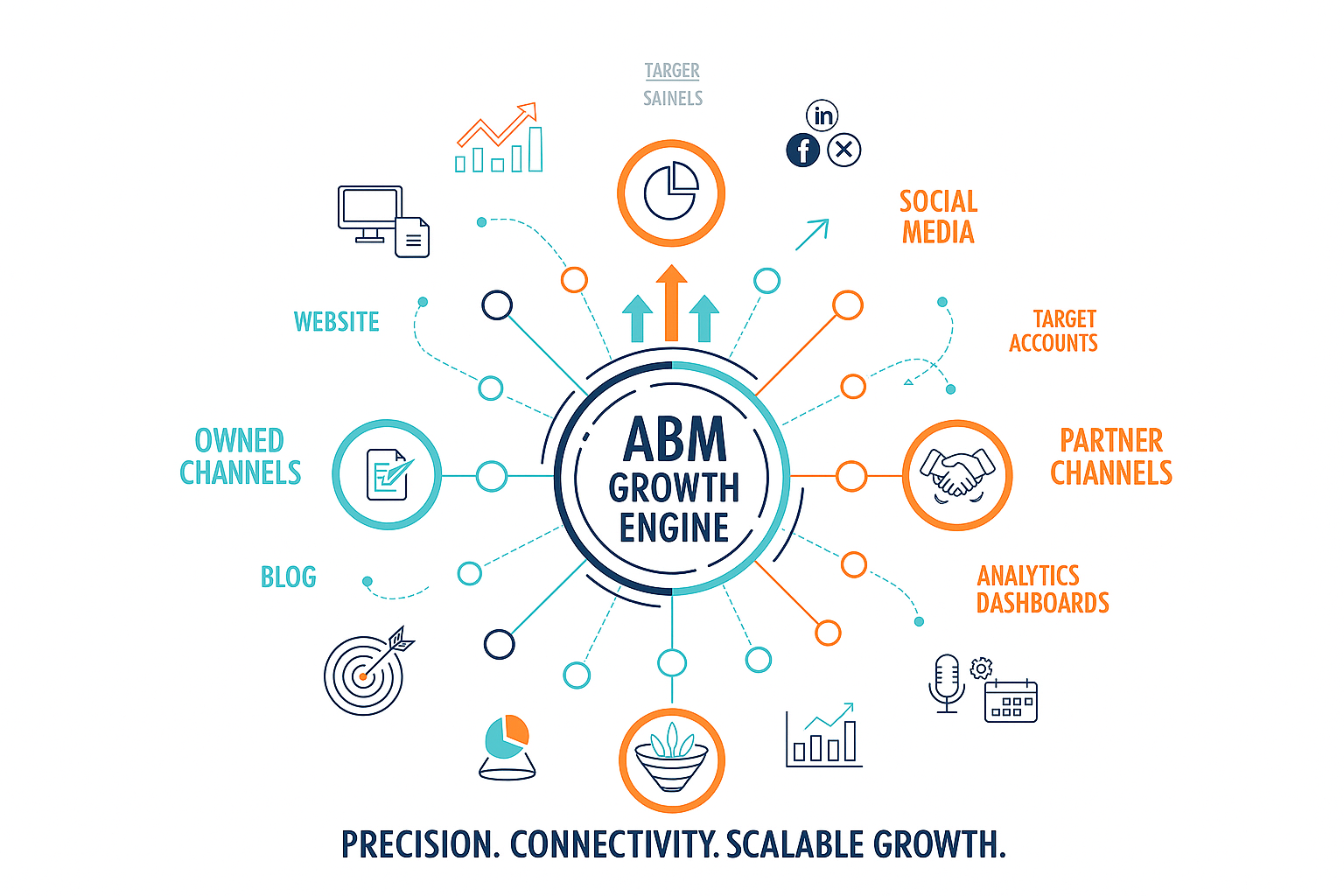B2B marketing today is more competitive than ever. Businesses invest heavily in ads, content, and automation to capture leads, but generating leads alone no longer guarantees results. Many marketing teams celebrate growing lead numbers, only for sales teams to report that most of those leads never convert into customers. This gap between marketing activity and actual revenue is a growing concern for modern businesses.
The challenge lies not in getting leads, but in identifying the right ones, the prospects who are genuinely interested and more likely to buy. That’s where Marketing Qualified Leads (MQLs) make the difference. MQLs act as a filter between marketing and sales, helping companies focus on leads with real intent rather than wasting time and resources on low-quality prospects.
In this article, we’ll explore why MQLs matter in today’s market, how they improve lead conversion, and why aligning marketing and sales around qualified leads is now essential for sustainable growth.
Table of Contents
ToggleWhy MQLs Matter for Better Lead Conversion
In today’s business world, generating leads is not enough. What truly matters is how many of those leads turn into paying customers. Many companies spend heavily on marketing but still struggle with lead conversion. The reason? They miss one critical step, identifying and using Marketing Qualified Leads (MQLs) effectively.
This article explains what MQLs are, why they’re important, and how businesses can use them to improve their lead conversion rates and overall revenue.
What Are Marketing Qualified Leads (MQLs)
A Marketing Qualified Lead (MQL) is a person who has shown genuine interest in your product or service. For example, they might have downloaded a brochure, attended a webinar, or subscribed to your newsletter.
An MQL is not ready to buy immediately, but they are more interested than someone who just visited your website once. These leads sit in the middle of your sales funnel, between general leads and sales-qualified leads.
In short, MQLs help bridge the gap between marketing and sales. When identified correctly, they help businesses focus on people who are most likely to become customers, improving overall lead conversion.
The Difference Between Leads, MQLs, and SQLs
To understand the value of MQLs, let’s quickly see how they differ from other types of leads:

MQLs act as a filter between marketing and sales. They ensure the sales team focuses only on leads that are worth their time, increasing the chances of successful lead conversion.
How MQLs Improve Lead Conversion
Strong MQL processes make the path from interest to purchase smoother. Here’s how MQLs support lead conversion:
- Better Targeting
Marketing teams can identify the right audience based on engagement data, for example, people who visit your website often or attend your webinars.
- Data-Based Decisions
By tracking lead behavior, companies can understand what drives interest and focus their efforts where conversion is most likely.
- Personalized Nurturing
Once a lead becomes an MQL, they can be nurtured through personalized emails, helpful content, and offers that match their interests.
- Faster Sales Process
Since MQLs are already warmed up, sales teams spend less time convincing them, leading to faster conversions.
- Stronger Marketing and Sales Alignment
When both teams agree on what defines an MQL, collaboration improves, and conversions increase.
How to Identify MQLs
Identifying MQLs involves tracking both actions and intent. Common signs of MQLs include:
- Downloading a whitepaper or eBook
- Registering for a webinar or event
- Opening marketing emails frequently
- Visiting key pages like pricing or case studies
- Engaging with your company on social media
When leads consistently interact in these ways, they are showing clear interest, making them more likely to convert later.
Using Lead Scoring to Define MQLs
To make MQL identification more accurate, businesses often use a lead scoring system. This assigns points to each action based on how important it is.
Example:
- +10 points: Visited pricing page
- +15 points: Downloaded an eBook
- +20 points: Attended a webinar
- +5 points: Clicked a marketing email
Once a lead reaches a certain score (for example, 60 points), they’re marked as an MQL and passed to sales. This keeps the lead conversion process structured and data-driven.
Steps to Improve MQL-to-SQL Conversion
To make sure MQLs actually convert into customers, here are some best practices:
- Align Marketing and Sales Teams
Both teams must agree on what defines a qualified lead and when it should move to sales. This alignment prevents confusion and wasted effort.
- Use Automation Tools
Platforms like HubSpot, Marketo, or Zoho help track and manage MQLs, automate follow-ups, and nurture leads efficiently.
- Leverage Analytics
Data tools like Google Analytics or your CRM can show which marketing activities bring the most qualified leads. Focus your budget on those areas.
- Personalize Communication
Generic emails rarely convert. Tailor your messaging to the lead’s industry, problem, or past behavior.
- Refine Regularly
Keep reviewing your MQL criteria. Update them as your market or products evolve to stay relevant and improve lead conversion.
The Handoff: MQL to SQL
The handoff between marketing and sales is a critical step. Many leads drop here if the process isn’t smooth. To fix this:
- Automate lead transfers between tools.
- Share notes about the lead’s behavior and interests.
- Track whether the sales team follows up quickly.
A clear process ensures leads don’t get lost, and lead conversion remains consistent.
Common Mistakes with MQLs
Many companies miss opportunities because they make one or more of these mistakes:
- Focusing on Quantity Instead of Quality
Having too many unqualified MQLs overwhelms sales teams and reduces conversion rates.
- Skipping Lead Nurturing
Not all MQLs are ready to buy. Some need more education before reaching the decision stage.
- No Feedback Between Teams
Without communication, marketing doesn’t know what kind of leads sales actually closes, leading to repeated mistakes.
- Ignoring Cold Leads
Leads who didn’t convert initially can still be re-engaged through remarketing campaigns.
The ROI of Strong MQL Management
When MQLs are handled correctly, businesses see major benefits:
- Higher sales efficiency: Sales teams focus only on serious prospects.
- Lower marketing waste: Less money spent on uninterested audiences.
- Predictable revenue: You can forecast conversions more accurately.
- Better customer relationships: Nurtured leads often stay loyal longer.
Ultimately, a strong MQL strategy boosts both lead conversion and long-term business growth.
Conclusion
In modern B2B marketing, MQLs are the missing link between generating interest and closing deals. Companies that identify, score, and nurture MQLs effectively achieve better lead conversion, stronger collaboration, and higher ROI.
By using data-driven methods, personalized engagement, and a smooth handoff between marketing and sales, businesses can turn potential leads into real custome, and build a more predictable, profitable sales pipeline.






